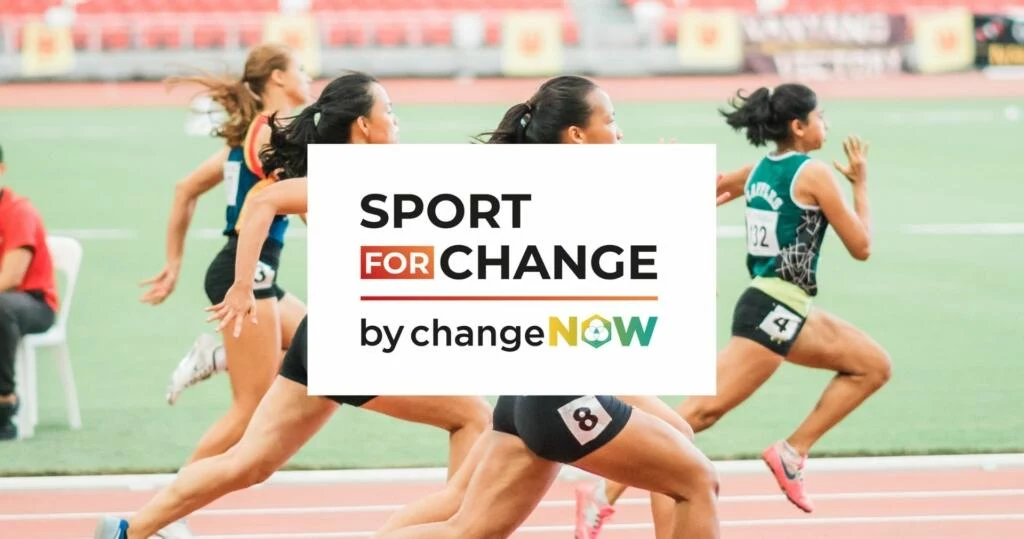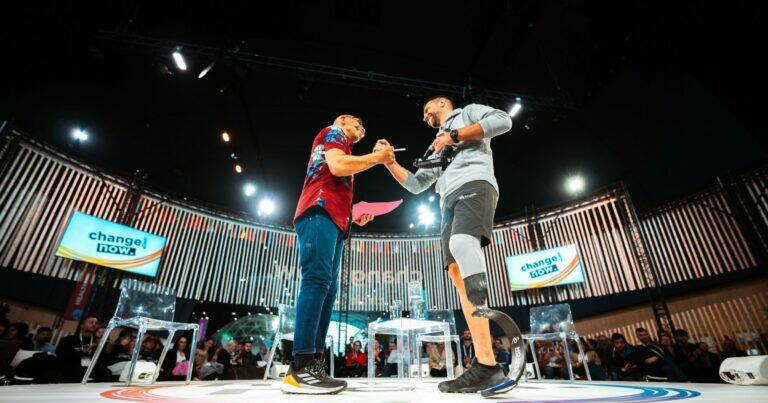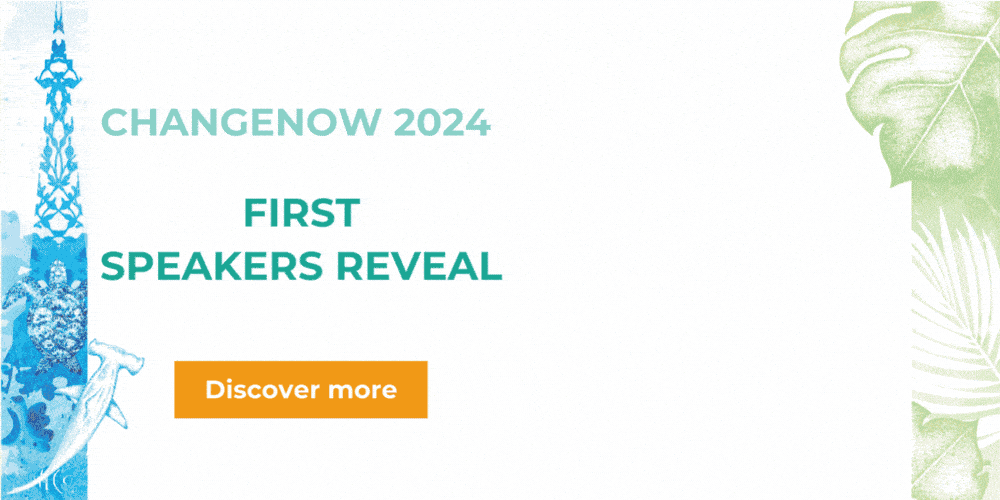Matthieu Witvoet is one of the project leaders supported by the Impact 2024 endowment fund. Eco-adventurer, Matthieu is convinced that sport is also an excellent lever to raise awareness of the ecological crisis. Through his sporting challenges, he alerts people to specific environmental issues and encourages them to take action.
How did your commitment as an eco-adventurer come about?
It all started in 2017, after my studies when I decided to go on a world tour by bike with my cousin. At that time, we were becoming aware of the problem of plastic pollution, but it was still not widely publicized. So we had an idea: to find solutions to fight against plastic waste and meet innovative project leaders. One year and 18,000 km later, we mapped out more than 300 solutions worldwide: bioplastics in Indonesia, recycling in favelas in Brazil, and very complex packaging recycling systems in South Africa… And we made a web series on the 15 most inspiring. On my return from this almost initiatory trip, with the conviction that we must deploy the existing solutions, I joined the Circul’R teams to create a community of exchange between 50 large groups, 50 circular solutions, and in partnership with the Ministry of Ecological Transition.
Since then, there have been many new adventures. Can you tell us about them?
In parallel to my work, I was embarking on other challenges, such as crossing the Strait of Gibraltar by swimming. The idea was to do it in an ideal way, by going by train, doing 100% zero waste, or preparing all the supplies ourselves.
A first swimming adventure that made me want, with my girlfriend and brother, to do something bigger and closer to home: Croissy sur Seine. That’s where the idea of using the Seine as a playground was born and to tackle the most common waste found in the oceans: cigarette butt. A small piece of trash that contains more than 4000 pollutants and is capable of polluting 500 liters of water. In June 2021, we organized the most extensive collection of cigarette butts ever, with 855,000 butts collected in 3 hours by over 1,000 people throughout Paris. We then swam down the Seine in a relay, to symbolize the journey of a cigarette butt from the capital to the sea, 380km away.
After this challenge, the para-swimmer Théo Curin invited me, with Malia Metella, to take up a new challenge with him: the crossing of Lake Titicaca in autonomy. After 14 months of preparation, we swam more than 120km at 3 800m altitude in water at less than 15 degrees while pulling our 500kg house: an eco-designed boat recovered from the Plastic Odyssey association. Through this project, beyond the sporting performance, we wanted to alert on the lake’s pollution, highlight the solutions, and, more broadly, raise awareness of environmental and climate issues. For example, we helped a local association to set up a waste boat to collect and treat plastic waste on the two largest islands instead of burning it directly.
“Sport has the power to make people experience emotions and when you feel this emotion, you become more receptive to the message.”
Matthieu Witwoet, Eco-Adventurer Tweet
Your projects are always spectacular challenges associated with real environmental issues. Is this the best way to raise awareness?
A large part of the change we must achieve is behavioral change. With the statement “throw your cigarette butt in the garbage can,” we try to highlight a problem and bring an individual solution that can be quickly adopted. Beyond these sporting adventures, we tell a whole story: we want to create storytelling around a solid message to encourage people to think about their behavior with emotion.
You were awarded Impact 2024; how did this mechanism help you deploy your awareness project through sport?
Impact 2024, it’s a coincidence! I was on the train to Annecy, and I was talking about my Lake Titicaca challenge to my neighbor, whom I didn’t know, and he advised me to answer the Impact 2024 call for projects. The next day we launched the process. In the middle of shooting a documentary for 0 Mégot une Vague d’Espoir, we thought the call for projects would be an excellent way to broadcast it and raise awareness among a maximum of young people in schools. We applied, and we won. This allowed us to promote the documentary in a way we never expected. It took time, mainly because of Covid, but today the film has been screened in front of more than 5,000 students from Paris to Montpelier. It appeals to young people because, through this story, we tell our commitment in a visual, straightforward way, making them want to do it. And the message does not stop at the cigarette butt. We want to show everyone that when a problem affects us, the best vaccine against despair is action. There is always something to do!
You deal with these subjects in connection with the sport because you are passionate about it, but for you, what is the role of sport in the ecological transition?
For me, it’s essential to inspire and challenge without making people feel guilty. All those who have made me aware are people who have told me their stories with passion. Sports can make people experience emotions, and when you feel this emotion, you become more receptive to the message. Then you can say to yourself “If he does it, why can’t I? In this way, sports and sports events can mobilize people and contribute to these changes in behavior.
And in your opinion, how should major sporting events reinvent themselves from this perspective?
There are two different things. On the one hand, we have to reduce the environmental impact, and on the other hand, we have to increase the positive effects of the event. Let’s talk about the positive results: if someone eats a veggie steak during a Paris 2024 event and realizes it is good, healthy, and ecological, it can encourage them to change their diet. And it seems relevant when we know that food is the 1er factor of deforestation in the world. For me, the legacy of Paris 2024 is also this: to invite the millions of people, partners, and governments who follow their favorite athletes during the 30 days of the Olympic Games to change their behaviors, investments, and legislations.





